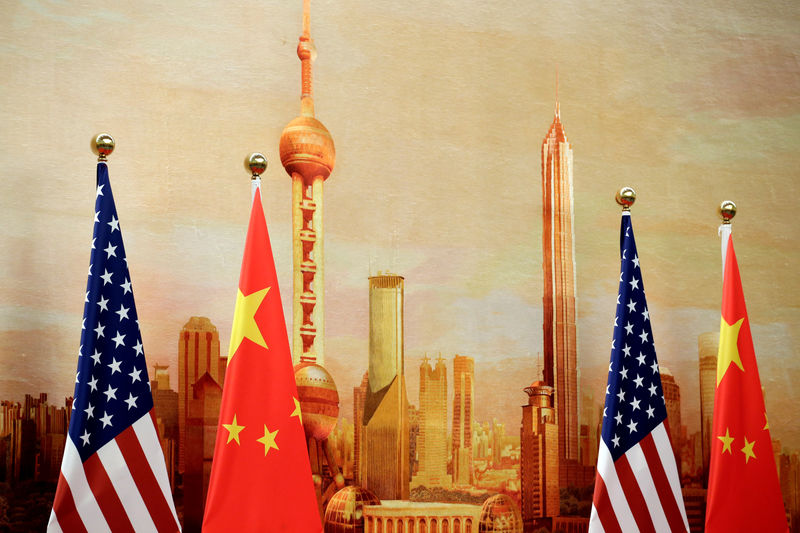Tesla shares drop after third-quarter profit falls short of estimates
Investing.com -- Despite speculation about potential off-ramps, the outlook for a negotiated rollback of U.S. tariffs remains deeply uncertain and likely distant, according to Wolfe Research.
While over 50 countries have initiated talks since the April 2 announcement, official signals suggest the administration sees tariffs not as bargaining tools but as long-term structural policy.
Wolfe analysts believe U.S. president Donald Trump is entering this phase with little appetite for immediate negotiation.
“Our thinking has been that he doesn’t want deals, he wants big tariffs,” said Tobin Marcus, Head of Policy & Politics at Wolfe Research, citing the president’s goals of reindustrialization, trade deficit reduction, and a broader reshaping of the global trade order.
“As a result, we remain concerned that it will take acute economic weakness to convince the President to consider changing course,” Marcus added.
Trump’s recent remarks further undercut expectations for short-term compromise.
“We have to solve our trade deficit, we have a trillion-dollar trade deficit with China… unless we solve that problem, I’m not going to make a deal,” he stated in an April 6 press gaggle.
The message was echoed across the administration, with Treasury Secretary Bessent and Commerce Secretary Lutnick both portraying the tariffs as a necessary corrective to decades of trade imbalance.
While Trump did mention a “very productive” call with Vietnam and pointed to a possible upcoming meeting, Wolfe’s Marcus downplays the prospect of near-term relief.
“We do not interpret this post to indicate that a deal is likely any time soon,” he said, highlighting follow-up comments by Trump and his advisors that criticized Vietnam’s trade practices and made clear that zeroing out tariffs alone won’t suffice.
Marcus concludes that any material tariff relief will likely require economic deterioration beyond market weakness.
“We suspect equity market drawdowns will not be enough, and this will require actual signs of weakness in the real economy."
Meanwhile, a deal in which Vietnam or another key trade partner lowers barriers without significantly shrinking its trade deficit would signal a clear shift toward a more deal-friendly approach and likely be viewed as a strongly bullish development, Marcus said.
